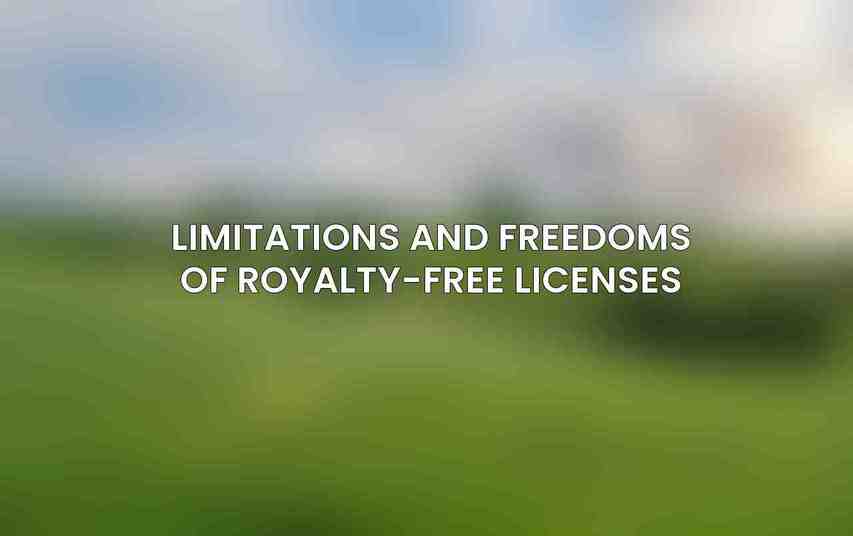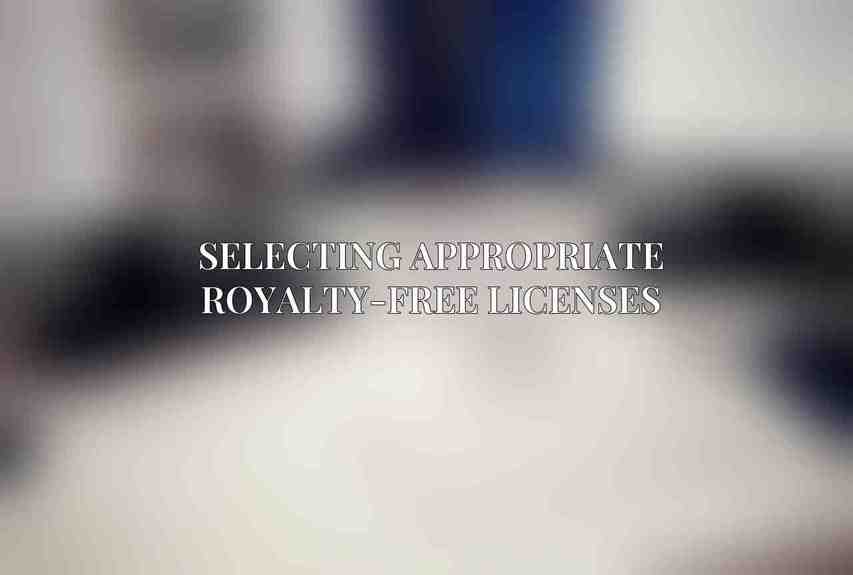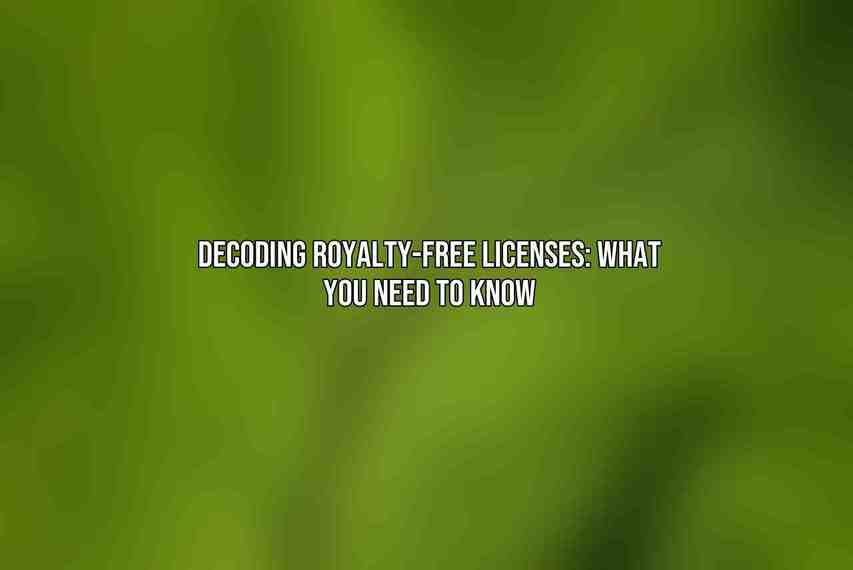royalty-free stands out as a popular model that offers users the flexibility to use content without recurring fees or royalties. this type of license grants the purchaser the right to use the content multiple times in various ways without having to pay extra fees for each use.
Definition of Royalty-Free
Royalty-free refers to a licensing model in which a one-time payment grants the buyer the right to use a piece of content without the need to pay royalties for each use. This model is widely used in various creative industries, especially in stock photography and music licensing.
Distinction from Other Licensing Models
Royalty-free licenses differ from other models such as rights-managed and creative commons. While rights-managed licenses require specific fees for each use based on factors like distribution, duration, and geographical reach, creative commons licenses have more flexible terms but may still have certain usage restrictions.
Benefits of Royalty-Free Licenses
- Flat-Fee Payment Model
- No Recurring Fees or Royalties
- Perpetual Usage Rights
Limitations and Freedoms of Royalty-Free Licenses

Understanding the boundaries and freedoms of royalty-free licenses is crucial for users to maximize their usage while staying compliant with licensing terms.
Permitted Uses
- Commercial and Non-Commercial Projects
- Unlimited Usage
Restrictions
- Attribution Requirements
- Modification Restrictions
- Geographic or Territorial Limitations
Understanding the Scope of Usage
- Print and Digital Media
- Derivative Works and Adaptations
- Physical Products and Merchandising
Impact on Stock Photo Usage
Vorteile der Verwendung von lizenzfreies Fotos
- Kosteneffizienz
- Breiter Zugriff auf qualitativ hochwertige Bilder
- Einfache Lizenzierung
Einschränkungen bei der Verwendung von lizenzfreies Fotos
- Qualitätsprobleme
- Mögliche Copyright-Probleme
- Beschränkter redaktioneller Gebrauch
Selecting Appropriate Royalty-Free Licenses

Factors to Consider
- Usage Purpose
- Distribution Channels
- Quality Requirements
- Reputation of License Provider
Guidance on License Options
- Standard Royalty-Free Licenses
- Extended Royalty-Free Licenses
- Creative Commons Licenses
Best Practices for Using Royalty-Free Licenses
To make the most of royalty-free licenses while avoiding legal pitfalls, the following best practices should be adhered to: Learn more about Mastering Rights-Managed Licenses for Stock Photos
A. Review License Terms Carefully
B. Obtain Written Permission for Usage
C. Ensure Proper Attribution
D. Be Aware of Potential Copyright Infringements
E. Seek Legal Advice if Uncertain
understanding the intricacies of royalty-free licenses is pivotal in content creation. By grasping the benefits, limitations, and best practices associated with these licenses, content creators can navigate the licensing world more effectively, ensuring compliance and fostering creativity in a sustainable manner. Royalty-free licenses play a crucial role in modern content creation, offering a balance of freedom and restrictions that cater to diverse creative needs. Making informed decisions when selecting and using these licenses is key to harnessing their full potential.
Frequently Asked Questions
What does ‘royalty-free license’ mean?
A royalty-free license allows you to use certain intellectual property, such as music, images, or software, without having to pay ongoing royalties for each use.
Are there any restrictions to using content under a royalty-free license?
While you may not have to pay royalties for each use, there may still be restrictions on how you can use the content. It’s important to carefully review the terms of the license agreement. Find more on Comprehensive Guide to Types of Stock Photo Licenses
Can royalty-free content be used for commercial purposes?
Yes, in most cases, you can use royalty-free content for commercial purposes. However, it’s crucial to check the specific license agreement to ensure compliance.
Do I need to credit the creator when using royalty-free content?
In many cases, you are not required to credit the creator when using royalty-free content. However, it’s always a good practice to give credit where it’s due.
Where can I find royalty-free content to use?
There are numerous websites and platforms that offer royalty-free content, such as stock photo websites, music libraries, and software marketplaces. It’s essential to choose a reputable source to ensure the legality of your usage.

